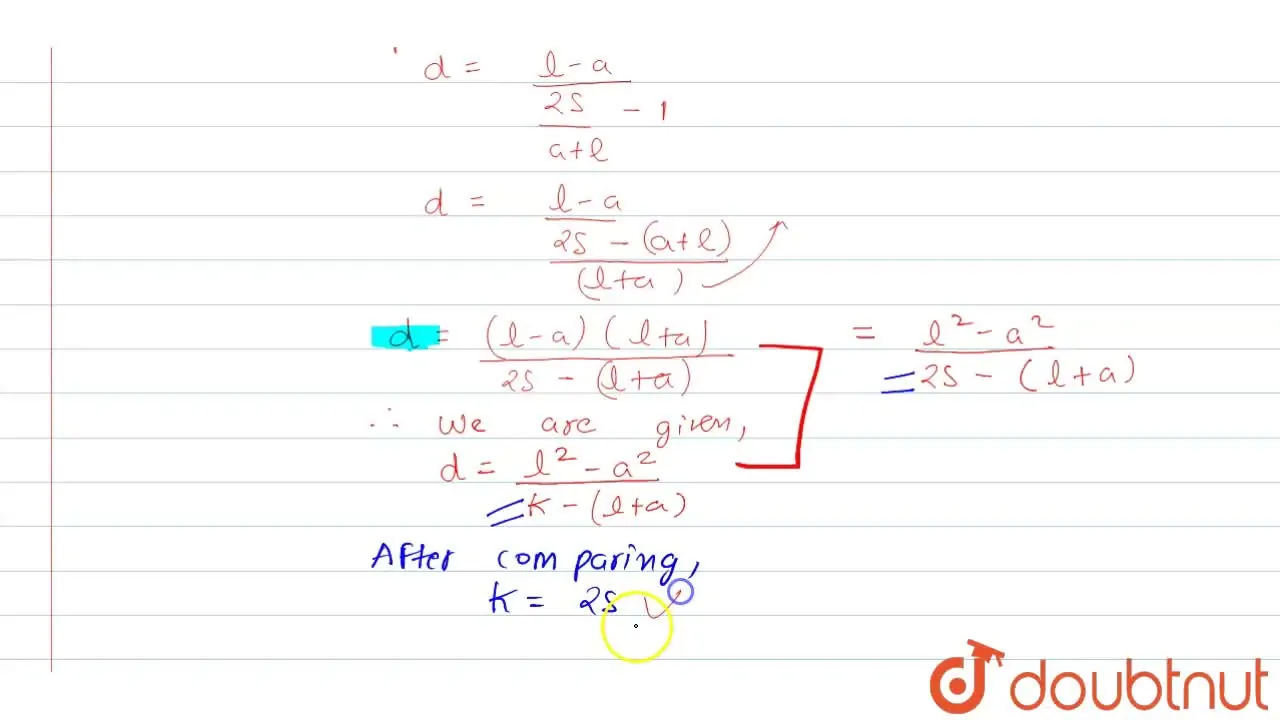The first and last term of an A.P. are and respectively. If is the sum of all the terms of the A.P. and the common difference is given by , then (a)(b) (c) (d) none of these
Step by step video & image solution for The first and last term of an A.P. are a and l respectively. If S is the sum of all the terms of the A.P. and the common difference is given by (l^2-a^2)/(k-(l+a)) , then k= (a)S (b) 2S (c) 3S (d) none of these by Maths experts to help you in doubts & scoring excellent marks in Class 10 exams.
Related Playlists
Similar Questions
The first and last term of an A.P. are a and l respectively. If S be the sum of all the terms of the A.P., them the common difference is
View SolutionThe first and the last terms of an A.P. are 5 and 45 respectively. If the sum of all its terms is 400, find its common difference.
View SolutionThe first and the last terms of an A.P. are a and l respectively. Show that the sum of nth term from the beginning and nth term from the end is a+l.
View SolutionIf the first, second and the last terms of an A.P. are a,b,c respectively, then the sum of the A.P. is
View SolutionIf the sum of n terms of an A.P. is Sn=3n2+5n . Write its common difference.
View SolutionThe first term, second term and middle term of an A.P. are a, b and c respectively. The sum of this A.P. is :
View SolutionThe first and the last terms of an A.P. are 34 and 700 respectively. If the common difference is 18, how many terms are there and what is their sum?
View SolutionThe first term and common difference of an A.P. are 3 and -2 respectively . Find its 6th term.
View SolutionThe first and the last terms of an A.P. are 4 and 81 respectively . If the common difference is 7, how many terms are there in the A.P. and what is their sum?
View SolutionIf the sum of n terms of an A.P. be 3n2−n and its common difference is 6, then its first term is
View Solution


